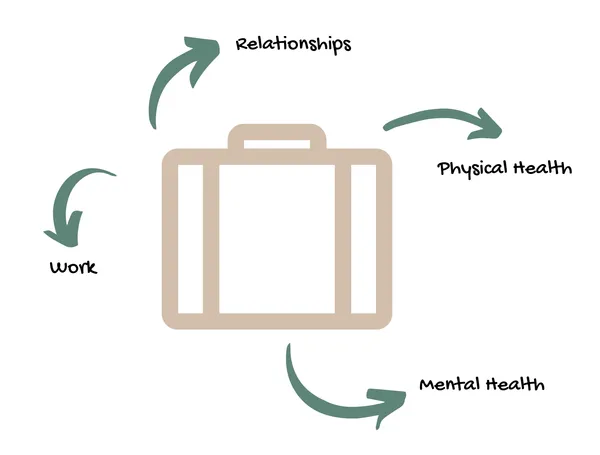Prioritizing Your Mental Health
The first time I took the time to consider or even think about the state of my mental health was in 2013. I had a traumatizing car accident that derailed me from all areas of my life and it was a challenging period for me, with some remnants that still affect me to this day. School became difficult because I lost focus and the drive to do anything. I didn’t want to see people or socialize. I didn’t have any semblance of motivation or inspiration. At this time, I was finding it difficult to even want to play ultimate frisbee, which is one of my favourite sports and something I would never skip, even if I was sick or injured. Despite this, the idea of improving my mental health barely crossed my mind because it was never considered a priority to me.

Growing up in a traditional Chinese family meant that reputation and outward appearances were the most important things you can do for your family name. Where you get your degree from, how many degrees you have, what your grades are, what kind of job you’re going to get, how skinny you are...those are some common questions that I have heard throughout my life. It was an indicator that you did not prioritize improving your reputation. That’s how it felt for me anyways.
It wasn’t until after my accident that I realized that how I felt was much more important than how I appear to others. My university suggested I seek out therapy for support and it seemed like a silly idea at the time. Although more people are attending therapy now, especially with the pandemic, a heavy blanket of negative stigma still surrounds it. It’s often considered as a sign of weakness or that you have a problem and that automatically lowers you on a social scale. We live through life being told that we have to make a certain amount of money, we have to look a certain way, and a bunch of values that only pertain to our reputation and how we appear to others. I’m here to full-heartedly say no, that’s not right. If people spend time going to the gym, eat healthily, have regular physical health check-ups, why is the same urgency not applied to mental health?
Healing doesn’t happen overnight - it takes time and effort. There might be days where you feel so alone, times when you have support from the people around you, and even moments when you wake up thinking, “I want to be better today.” I experienced a lot of ups and downs after my accident, but when I was finally ready and comfortable to talk about it, I started letting people in. I started to share about what happened with others and engaged in activities that brought me joy. I began to play more ultimate, hung out with friends, and even signed up for a half-marathon (I have five under my name and I never thought I would have done that).
Statistics Canada noted the following:
Statistics Canada also released some data about the mental health of Canadians during the COVID-19 pandemic. Within two months of the lockdown, mental health decreased significantly and women were more likely to report symptoms of anxiety in comparison to men. With the pandemic, there has been a decrease in mental health, especially with those aged 15 to 24. These are clear indications that mental health is an important part of our identities and it is necessary to spend time to take care of it.
The Canadian Mental Health Association has some interesting numbers here too:
The last point is the most important one of all: mental health does not discriminate. It exists in everyone. I like to think of mental health as a muscle - the more you exercise it, the stronger it gets. Over time, if it is left unattended, it grows weaker and it becomes harder to engage in it. Being able to deal with a situation, regardless if it’s celebratory or horrific, requires you to tap into your emotional intelligence, or the ability to manage emotions. By bringing attention to my mental health and making it a priority, I have noticed some positive changes:
So, how can you be more intentional about your mental health?
Think of your life as a big suitcase with multiple compartments. One section is for work, another for relationships, one for your physical health, and one for your mental health. You could have as many sections as needed, this is in your control. When was the last time you looked at these individual areas of your life, unpacked them, reflected, and packed them back up? You don’t have to do this all at once. Take the time and the space that you need, but do it intentionally and remind yourself that there will be times where something won’t fit or another item is out of place. That’s all part of the process and it’s an opportunity for change.

As you work unpacking your suitcase, here are some questions and statements that can help you move along this journey:
The definition of mental health is going to be different for everyone depending on many factors like your culture, your upbringing, your social environment, and your own level of self-awareness. Regardless of what makes us unique, something that is common in everyone is that we all have mental health. I encourage you to ask yourself two questions: